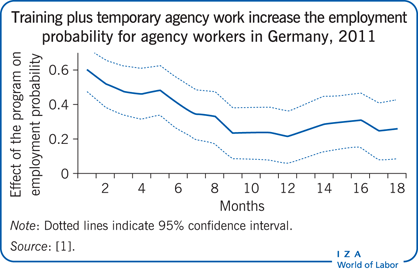Elevator pitch
Temporary work agencies use training as a recruitment and retention argument when qualified labor is scarce. However, short job assignments present a major obstacle for employers and employees to increase investment in training. As temporary agency workers are mainly low-qualified and often previously unemployed, paid work in combination with training should lead to more sustainable employment. Adjustments in labor market institutions could make the provision of training more attractive for both staffing agencies and temporary agency workers.
Key findings
Pros
Scarcity of qualified workers and continuous pressure on updating skills drive demand for training.
Training serves as a self-selection and screening device as well as a recruitment and retention argument for staffing agencies.
Training allows agency workers to acquire competencies needed by user companies.
Temporary agency work allows workers to combine paid work with complementary off-the-job training.
Training for previously unemployed and low-qualified agency workers has positive external effects.
Cons
Return on investment in human capital cannot be captured by staffing agencies due to short job assignments.
Agency workers may quit after receiving training in favor of better paid jobs in a user company.
Training programs carry high administrative costs due to the large number of players involved.
Agency workers may be reluctant to invest in training due to short job assignments and insecurity regarding future labor market outcomes.
There is no guarantee that agency workers will receive higher pay after training, and agency training is no substitute for vocational or college education.
